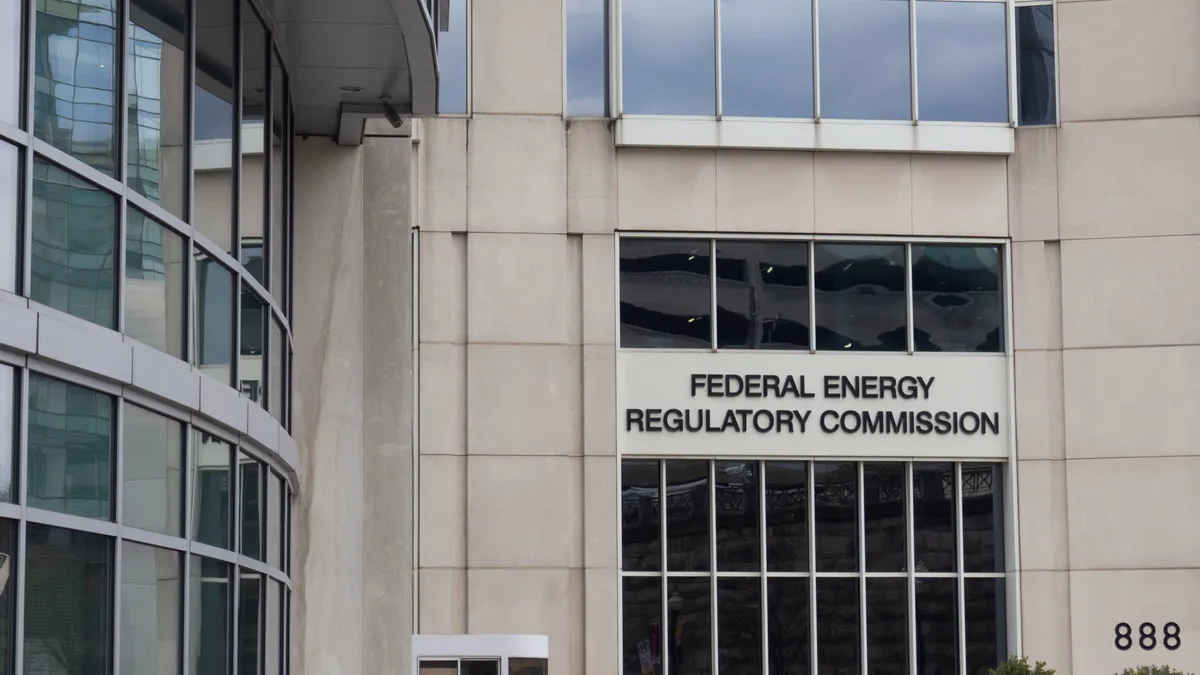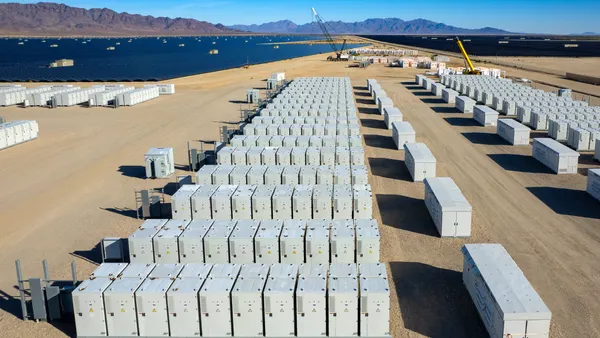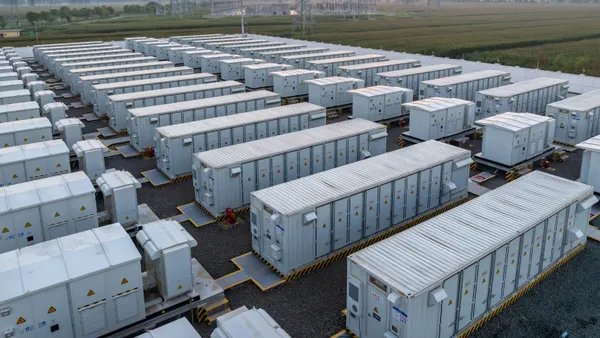Dive Brief:
- Lawmakers in the U.S Senate yesterday resumed debate over broad energy legislation, with the hopes of wrapping up votes and amendments by the end of the week.
- Though the legislation is broad and bipartisan, largely aiming to modernize the United States' electric grid, E&E Daily reports that a series of coal and climate amendments could ultimately could doom the bill's chances.
- Simultaneously, the House Subcommittee on Energy and Power will hold a hearing on eight energy infrastructure bills today, including five focusing on growing the nation’s hydroelectric power from non-powered dams.
Dive Insight:
It will be a busy week in Congress, but especially so on the Senate side where lawmakers are considering broad legislation that would rival the scope of the Energy Independence and Security Act of 2007.
Lawmakers began debate last week, and E&E Daily reports they are hoping to wrap up work this week. But tomorrow is likely the day when things get interesting, as votes will be taken on a slew of amendments – there are almost 200, and at least some are likely to be contentious.
Among the amendments: Senators Dianne Feinstein and Barbara Boxer, both Democrats from California, will introduce a measure calling for a federal review of the Aliso Canyon methane leak; Sen. Brian Schatz (D-HI) will introduce another amendment focused on methane leaks; Sen. Jack Reed (D-RI) wants drilling companies to report more on environmental impacts; and Sen. Al Franken (D-MN) is pushing efficiency standards for power and gas companies.
On the Republican side, amendments to be discussed include repealing the Obama Adminstration's coal leasing moratorium as well as moves to block the U.S. Environmental Protection Agency's Clean Power Plan. Amendments such as those could produce a veto threat from the White House, which has indicated the president will not sign any bill that threatens his signature carbon regulatory package.
Other amendments include $600 million in assistance for the Flint water crisis and a proposal filed by Sen. Angus King (I-ME) to address the net metering debates playing out nationwide. Minority Leader Harry Reid (D-NV) backed the proposal, which would preserve consumer agreements on net metering policies by curbing the state regulators' abilities to impose higher rates.
Lawmakers approved 11 amendments to the bill last week, and eight on Monday, according to the Hill and Politico, respectively. Majority Leader Sen. Mitch McConnell (R-KY) has indicated he wants to keep the amendement process open and bipartisan.
In the House, the Subcommittee on Energy and Power will meet at 10 a.m. this morning to consider eight infrastructure bills.
In addition to focusing on hydropower, another would amend the Natural Gas Act to accept data collected by aerial survey for purposes of completing federal reviews of natural gas pipelines; another would amend to allow reconsidering of rates when the Federal Energy Regulatory Commission (FERC) is deadlocked; and another amends the FPA to expressly include a minimum monetary threshold of $10 milloin for acquisitions of FERC-jurisdictional facilities.
If the Senate passes its energy infrastructure bill, it will likely need to be reconciled with one passed last year by the House in a conference committee.













